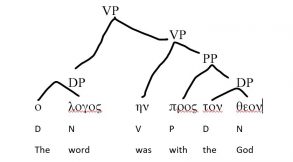First question, why is accurate historic background important?
The way words work is that we have experiences floating around in our minds and we associate these experiences with words. When we hear or produce these words, the memories are triggered and we make custom meanings based on these memories.
Also, the historic background tells us who, to whom, and why any text was written.
Here is some of the main things happening from 66-70:
Consider the events behind the following books written between 66-70: 2 Timothy (Fall 66), 2 Peter (Spring 67), 1, 2, 3 John and Jude (late 67-68), John, Mark and Hebrews (late 68, early 69).
Paul (2 Tim 4:6-8 ) and Peter (2 Peter 1:15) knew they were soon to die. These two and 1, 2, 3 John and Jude were all writing at least in part to insure good transition of leadership, since the apostles who were eye witnesses of Jesus soon would be gone. (see 2 Peter 1:16, John 1:1-3 and John 21:24 where being an eye witness is presented as verification of the truth of what was written.)
Also, consider the various prophecies that all Christians were looking toward completion:
- Wolves (false teachers) would come (Paul in Acts 21:29)
- Peter would be murdered, but John might live beyond Peter (Jesus in John 21:20-23)
- Jerusalem would be destroyed (Jesus in Matt 23:37)
- Jerusalem would be destroyed (as reported by Eusebius, in 62 A.D. the Christians living in Jerusalem received a prophecy and all left the Jerusalem area, so few if any Christians were in Jerusalem when it was destroyed in 70 A.D.).
- Jesus would return Acts 1:11, 1-2 Thes, 2 Peter and Rev.
So here we have a convergence of topics (false teachers descending on the Church) and topics of the letters (what to do with false teachers.)
Also, consider the Battle of Beth Heron in July 67. Israel defeated the 12th Roman Legion and declared independence from Rome. This started the who Roman government and Roman military on a direct path toward destroying Israel, as ultimately happened in the destruction of the temple on August 10, 70.
These are the things on the minds of Christians when writing or reading the letters and books written and read between 66-70.
These various historic activities were also, at least in part, the reason why these books were written.
For an accurate interpretation, one should consider the historic background, grammatical details, and literary structure. When these three converge on supporting an interpretation, one can be very certain one’s interpretation is correct.
Future blogs will consider the literary structure and grammatical details and how they interact with the historic background.#GreekBible#KoineGreek#BibleHistory#2Timothy#1Peter#2Peter#Jude#New Testament Greek
Views: 190
